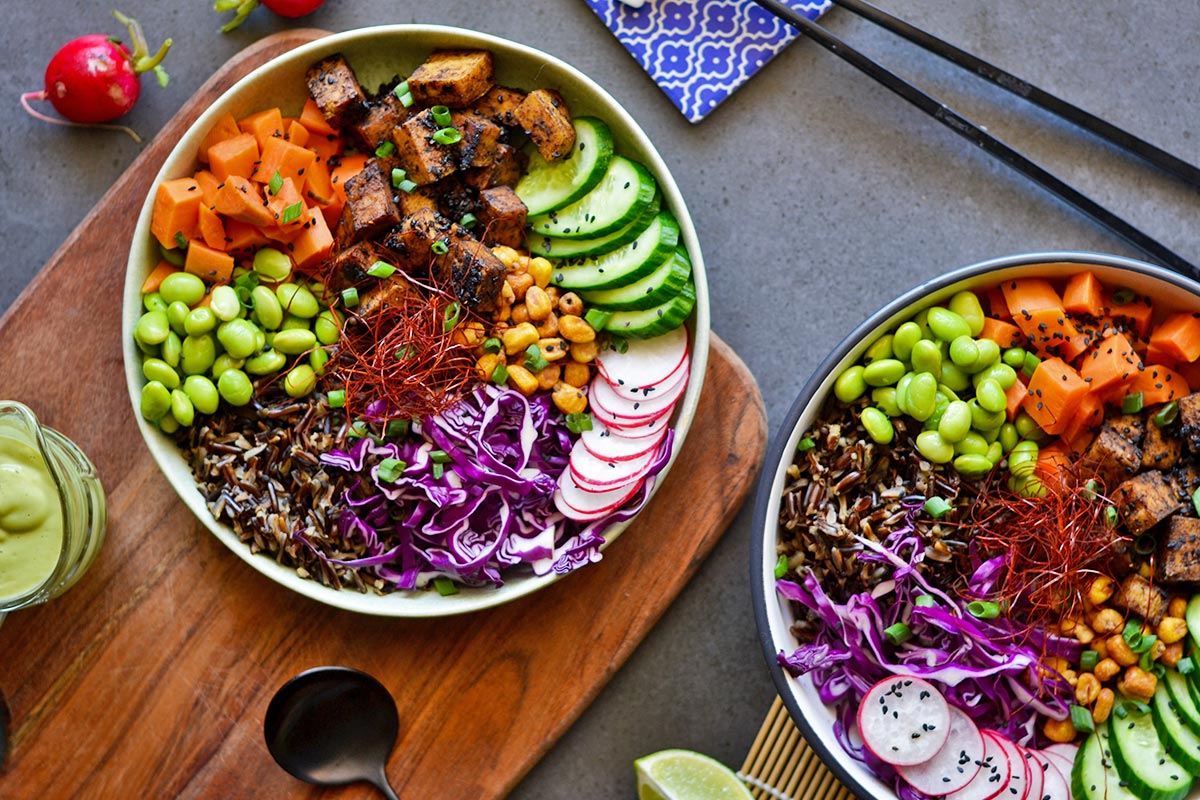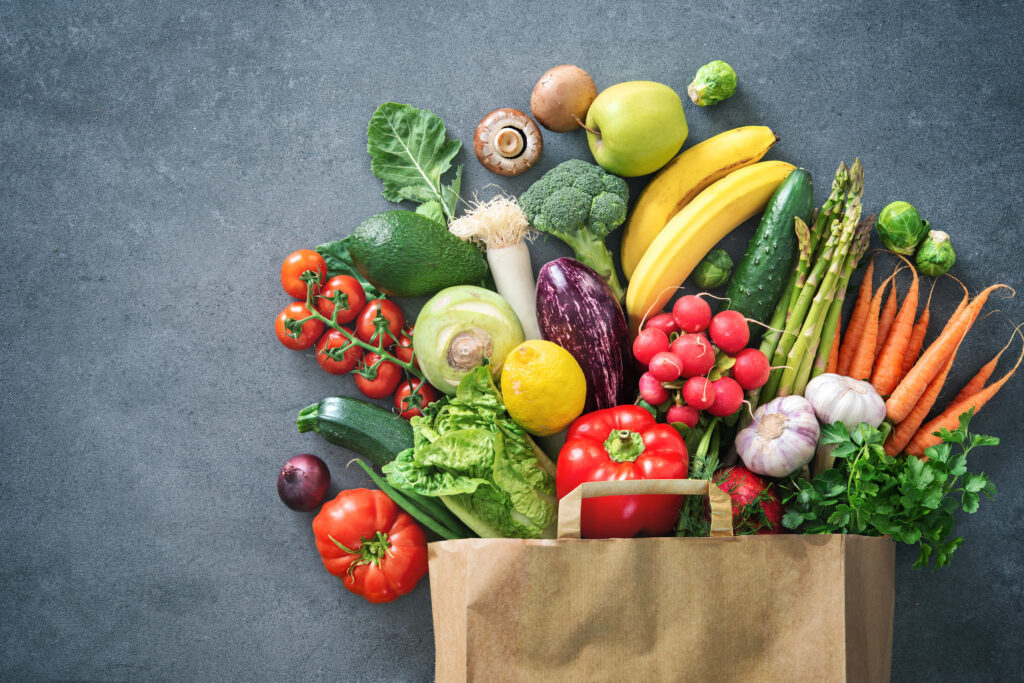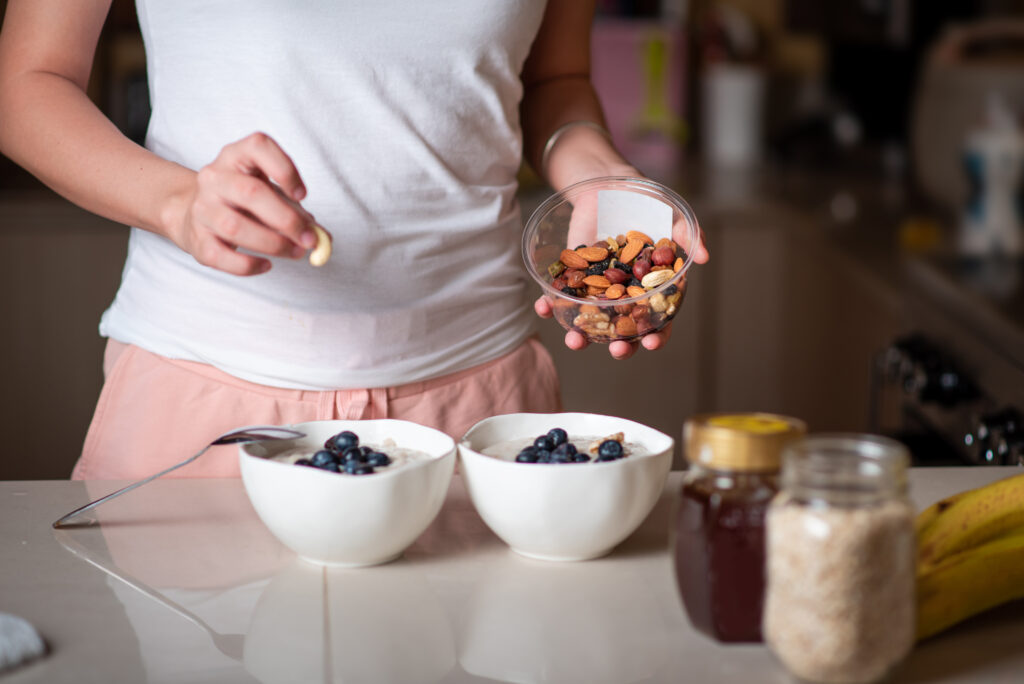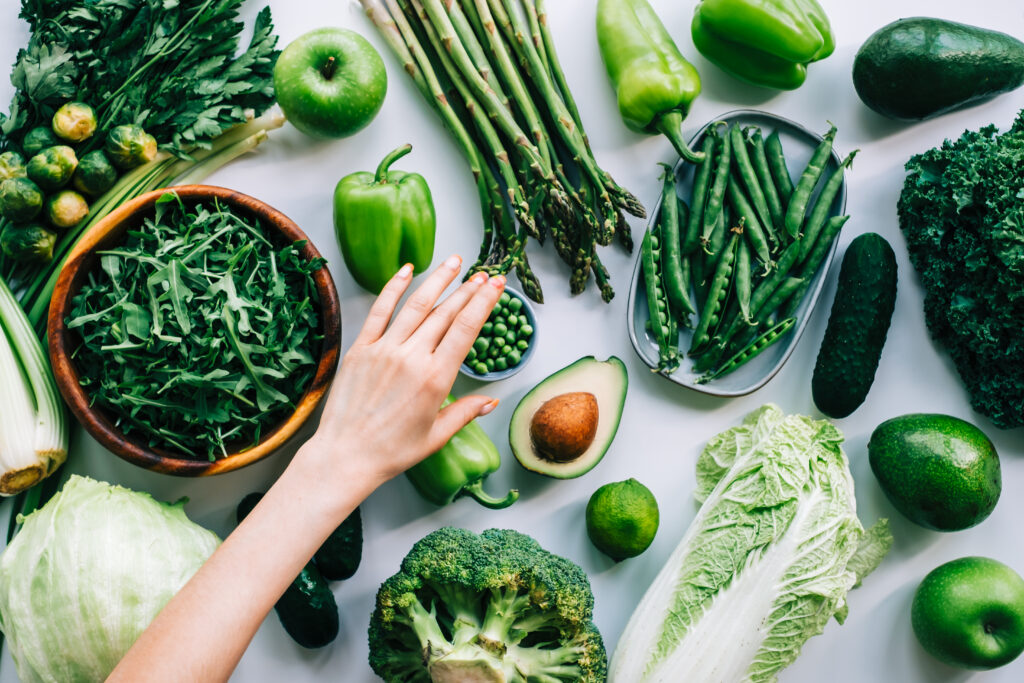
Article

It’s very likely that eating more plant-based foods will make you feel invigorated, more energised, and lighter on your feet. That’s thanks to the huge range of natural and nutritious foods you’ll find yourself eating! You’ll just want to ensure you are indeed striking a healthful balance. After all, no matter how long you could survive on fried potatoes alone, you’ll need a whole lot more variety if you’re planning to thrive. And that’s what we all want, isn’t it?
Here are four simple tips to keep in mind while eating your way through the plant kingdom…

Getting all the nutrients you need is easy when you eat a wide variety of foods. Fill your plate with foods of every colour in the rainbow. Switch up your meals as much as you can, and be sure to eat from all of the vegan food groups: fruits, vegetables, grains, beans and nuts.
If you have go-to recipes you already love, try them with different veggies every now and again (cauliflower and broccoli are practically twins, after all) or swap out your chickpeas for black beans. Quinoa and barley make delicious rice substitutes when you want to mix things up, and you may consider nuts and seeds your ultimate meal topper. A handful of walnuts, almonds, pumpkin seeds or hemp seeds can provide exactly the nutty crunch your dinner needs – and with loads of health benefits to boot!

Stay energised by making sure you add plenty of calorie-rich foods to your repertoire. Foods like nuts, seeds, beans, lentils, plant-based meats and healthy oils are calorie-rich and full of protein, and it’s good to get one or two of these on your plate at every meal.
Starchy foods like potatoes, grains, breads, and pastas, will also go a long way to fill you up, keep you satiated, and give your body the energy it needs. Most vegetables contain a lot of water, so the good news is you can eat loads of them and still have plenty of space for the foods that will do more to fill you up!

Leafy greens like kale, spinach, silverbeet, and Bok choy are true stars of the vegetable world. They’re bursting with essential nutrients, such as calcium, fibre, iron, zinc, iodine and magnesium, plus many B vitamins, and vitamins A, C, and K. And the more you use them, the easier it becomes to include them at every meal.
You can start by frying any of these greens with garlic to serve as a side, or throwing them into your veg sandwiches, burritos, or salads. With the softer ones like spinach, sprouts, and microgreens, you can even blend them into your daily smoothie for an easy (if not sneaky) boost of nutrients – your body will thank you for it!

Eating plant-based can have huge advantages for your health, but it is possible to be a ‘junk food vegan’. Whilst we all indulge sometimes (everyone deserves chocolate cake), you’ll feel best if you make sure you’re eating plenty of fruit, vegetables, beans and whole grains. As a general guidepost, remember that the closer your meals and ingredients are to their natural, unprocessed state, the better 😊
Bonus tip: It is essential to supplement a plant-based diet with B12 vitamins, or B12-fortified foods, as there are no plant sources for this nutrient. Luckily this is a vitamin that your body can store for many days, and potentially weeks – so it’s likely you won’t need to take it daily. ![]()
For nutritional advice specific to your needs, please consult with a registered health professional (like a plant-based dietitian).

VegKit was launched in 2018 as an initiative of Animals Australia. We offer support for those wanting to eat more plant-based food, because it’s gentler on the planet and on animals. And it can be a whole lot gentler on your own body too! Stick around, and we’ll share with you inspiration, tips, and recipes for your plant-based journey :)